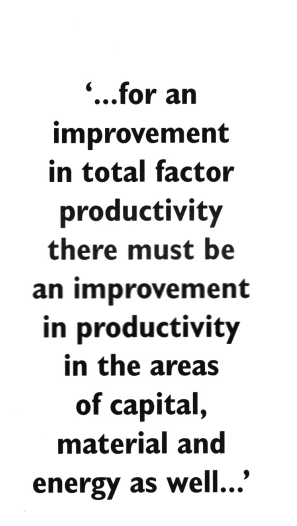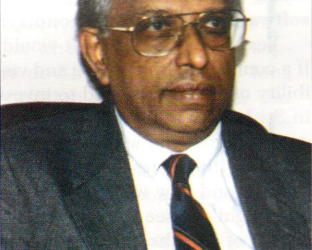he National Institute of Business Management (NIBM) is the National Productivity Organization (NPO) of Sri Lanka, a branch of the Asian Productivity Organization, conceived by Japan, which includes among its members Singapore, India, Hong Kong, Malaysia, Korea, and most recently, Vietnam. As a result of the devastation wrecked during World War II many Western European nations and Japan began to look at an increase in productivity as the way to begin building their shattered economies.
With a legal mandate to improve productivity in the country, the NPO has identified priority areas, and they include creating productivity awareness, promoting productivity, company-wide improvement and developing models, inter-firm comparisons, measuring productivity and establishing a productivity data base, and giving national recognition to productivity efforts of organizations. ‘Productivity is not an increase in production. The misconception that if you see an increase in production capacity, you have improved your productivity is harmful and makes companies lose their focus,’ said D S Thoradeniya, acting director of the productivity Division, NIBM, ideally productivity facilitates continuous growth, shows areas for further growth and strengthens competiveness; reduces wastage of human skills, materials and energy minimizes idle time, machine breakdowns, rejects and re- develops better, easier, quicker and safer means of achieving corporate goals; enables the production of better quality goods and services and value addition; provides a greater sales turnover, big market share, increased earnings and profitability; creates more job opportunities, thus helping to make an important social contribution; develops a motivated, disciplined and dedicated workforce with a will for constant improvement and fosters a productive way oi life; and, enables distribution of productivity gains, nurturing better labor-management relations, helping the collative bargaining process.
Although the NPO was formed in 1966, and was under the wing of NIBM since 1968, little attention was paid to promoting awareness of productivity and helping industries and services to achieve better levels of productivity. That is, until 1993, when a threefold program was launched to improve productivity in the country. A Productivity Awareness and Skills Development Programme was conducted among school children, the first of its kind in Asia. ‘The school children of today are the workforce of tomorrow. They need to be aware that productivity can be increased with small changes in attitudes and habits. The program focused on teaching children first to increase productivity in the household, and by these exercises they learnt valuable productivity improvement strategies which they ean apply to their workplace and to any area in lives,’ said Thoradeniya. The programme has been conducted annually island wide, with poster competitions and quizzes being held as

productivity in the labor force is all that matters. However, for an improvement in total factor productivity there must be an improvement in productivity in the areas of capital, material and energy as well,’ said Thoradeniya. An Annual Productivity Work- shop is also organized by the NPO, in order to raise awareness and consciousness among the senior management of industries and service sector companies and organizations. Foreign productivity specialists offer their expert advice during these workshops and the productivity drive of the NPO has been greatly strengthened by these workshops.
A Model Companies Program, launched in 1994 by the NPO has proved to be very successful. Currently two companies, both industrial factories, have come under this program and the results have been startling. Through dialogue between senior level and middle level management and the rest of the employees, a spirit of team work was built where rancour and segregation was earlier the norm. ‘Team work is very essential to increasing productivity. This is something new to a lot of industries and companies, but once thev understand how to work as a team, and they build an understanding amongst themselves, the results they achieve are amaz- ing,’ said Thoradeniya.
Productivity improvement training has been extended to both employee organizations (trade un- ions) and employer organizations (chambers). ‘In all aspects of introducing companies to productivity improvement strategies, we have begun with simple concepts, and once the foundation has been strengthened, we build on to higher levels. For almost all industries and companies, if they do not stop and evaluate their levels of productivity and strive to improve these levels, they will find it extremely difficult to remain productive and competitive,’ said Thoradeniya.



